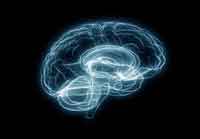According to a recent study, treatment with human neural stem cells allowed mice severely disabled by a multiple sclerosis (MS)-like condition to walk in less than 2 weeks following treatment. The results surprised researchers, according to Tom Lane, PhD, professor of pathology, University of Utah, who facilitated the work at University of California, Irvine.
“My postdoctoral fellow Dr. Lu Chen came to me and said, ‘The mice are walking.’ I didn’t believe her,” Lane says.
As stated in a news release issued by the University of Utah Health Sciences, within 10 to 14 days, the mice regained motor skills. After 6 months, the researchers note that the mice still exhibited signs of improvement.
The release reports that the MS mice treated with human stem cells experience a reversal of symptoms. Immune attacks are dulled and damaged myelin is repaired. The researchers originally believed the mice would reject the stem cells. There were reportedly no signs of the cells after one week. In this short window of time, researchers explain, the stem cells send chemical signals that instruct the mouse’s own cells to repair the damage caused by MS.
Lane adds that the results may one day allow the chemical signals to be put into a drug that can then be used to deliver the therapy more easily, rather than engrafting the stem cells into a patient. The research’s next steps center on assessing the durability and safety of stem cell therapy in mice, the release states.
“This result opens up a whole new area of research for us,” said co-senior author Jeanne Loring, PhD, co-senior author and professor at The Scripps Research Institute in La Jolla, Calif.
Source: University of Utah Health





